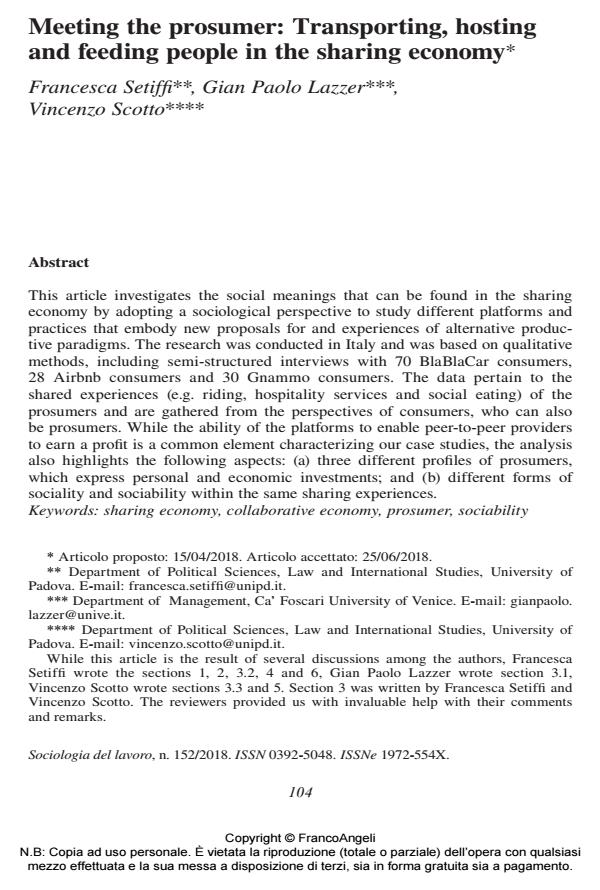Meeting the prosumer: Transporting, hosting and feeding people in the sharing economy
Journal title SOCIOLOGIA DEL LAVORO
Author/s Francesca Setiffi, Gian Paolo Lazzer, Vincenzo Scotto
Publishing Year 2018 Issue 2018/152
Language English Pages 16 P. 104-119 File size 110 KB
DOI 10.3280/SL2018-152006
DOI is like a bar code for intellectual property: to have more infomation
click here
Below, you can see the article first page
If you want to buy this article in PDF format, you can do it, following the instructions to buy download credits

FrancoAngeli is member of Publishers International Linking Association, Inc (PILA), a not-for-profit association which run the CrossRef service enabling links to and from online scholarly content.
This article investigates the social meanings that can be found in the sharing economy by adopting a sociological perspective to study different platforms and practices that embody new proposals for and experiences of alternative produc¬tive paradigms. The research was conducted in Italy and was based on qualitative methods, including semi-structured interviews with 70 BlaBlaCar consumers, 28 Airbnb consumers and 30 Gnammo consumers. The data pertain to the shared experiences (e.g. riding, hospitality services and social eating) of the prosumers and are gathered from the perspectives of consumers, who can also be prosumers. While the ability of the platforms to enable peer-to-peer providers to earn a profit is a common element characterizing our case studies, the analysis also highlights the following aspects: (a) three different profiles of prosumers, which express personal and economic investments; and (b) different forms of sociality and sociability within the same sharing experiences.
Keywords: Sharing economy, collaborative economy, prosumer, sociability
- Prosumers in times of crisis: definition, archetypes and implications Bodo Lang, Rebecca Dolan, Joya Kemper, Gavin Northey, in Journal of Service Management /2021 pp.176
DOI: 10.1108/JOSM-05-2020-0155
Francesca Setiffi, Gian Paolo Lazzer, Vincenzo Scotto, Meeting the prosumer: Transporting, hosting and feeding people in the sharing economy in "SOCIOLOGIA DEL LAVORO " 152/2018, pp 104-119, DOI: 10.3280/SL2018-152006